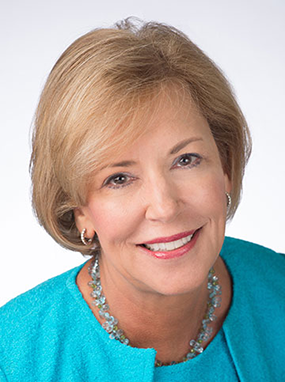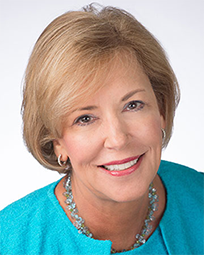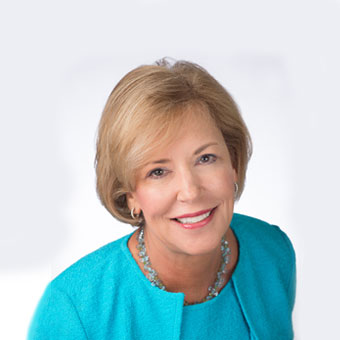
Stephanie Hirsh
Stephanie Hirsh retired in June 2019 after 31 years with Learning Forward, an international association of more than 13,000 educators committed to increasing student achievement through effective professional learning. Hirsh led the organization as its executive director for the last 13 years where she presented, published, and consulted on Learning Forward’s behalf across North America. Her books include Becoming a Learning Team, co-authored with Tracy Crow (Learning Forward, 2018), Becoming a Learning System, co-authored with Kay Psencik and Frederick Brown (Learning Forward, 2018); A Playbook for Professional Learning: Putting the Standards Into Action, co-authored with Shirley Hord (Learning Forward, 2012); and The Learning Educator: A New Era for Professional Learning, co-authored with Joellen Killion (NSDC, 2007). Hirsh wrote a column for The Learning Professional, Learning Forward’s bimonthly magazine, Educational Leadership, Phi Delta Kappan, The Record, The School Administrator, American School Board Journal, The High School Magazine, and Education Week. Hirsh has served on a number of advisory boards including Learning First Alliance, 2-Rev, Digital Promise, the University of Texas College of Education, and The Teaching Channel. She served three terms as a school board trustee in the Richardson (TX) Independent School District. She received a Lifetime Achievement Award from the Texas Staff Development Council, Master Trustee from the Texas School Board Association, and was named a Distinguished Alumna by the University of North Texas.
All Articles
-
Why teachers embrace -- or reject -- technology tools
Every week, it seems, there are enticing new technology tools developed for educators, schools, and school systems. What is it that leads teachers to use such resources? Learning Forward recently concluded a study to understand the factors that drive teachers to embrace -- or reject -- the use of tools […] -
Let's make the most of teachers' time together
Research has shown that effective collaboration results in higher levels of learning and performance by educators and students. Yet we also know that merely setting aside time and room for teams to work together does not guarantee these benefits. So what are the essential elements of effective collaboration? Many of […] -
Focus professional learning communities on curriculum
Research has found that high-quality curricula have a significant impact on student achievement (Steiner, 2017; Chingos & Whitehurst, 2012). But a curriculum is not effective on its own. It requires teachers who understand it and use it with intentionality and professional judgment. This means teachers who know the curriculum […] -
Call To Action
In my view, no learning model has captured educators’ attention more than collaborative learning structures. Over the last few decades, they’ve had many names, starting with professional learning communities (PLCs). In some corners, they became professional learning networks or learning teams. We also use the terms communities of practice and […] -
Create Learning Systems, Not Silos
In a learning system, central office personnel assume collective responsibility for schools and go about their work very differently. They are responsible not only for departments and programs, but also for student learning. They demonstrate that responsibility by engaging in data-informed conversations about student achievement. These conversations model a culture […] -
How Curriculum And Professional Learning Intersect
Research has found that high-quality curricula have a significant impact on student achievement (Steiner, 2017; Chingos & Whitehurst, 2012). But a curriculum is not effective on its own. It requires teachers who understand it and use it with intentionality and professional judgment. This means teachers who know the curriculum and […] -
Focus professional learning communities on curriculum
Research has found that high-quality curricula have a significant impact on student achievement (Steiner, 2017; Chingos & Whitehurst, 2012). But a curriculum is not effective on its own. It requires teachers who understand it and use it with intentionality and professional judgment. This means teachers who know the curriculum and […] -
5 reasons why every policymaker should fight to save Title IIA
As most readers know, I live in Texas. My elected representatives are quite conservative on issues related to federal involvement in education. Their point of view is grounded in the U.S. Constitution, which places control over education firmly in the hands of states. It also finds expression in the bipartisan […] -
My 2018 resolutions: Listen closely, take a stand, empower others
It's a new year, and I am embracing a fresh start. While there are countless things I could put on my resolution list, I will limit it to three and focus on accomplishing these. Be a better listener. I resolve to focus on what others are saying rather than thinking […]





